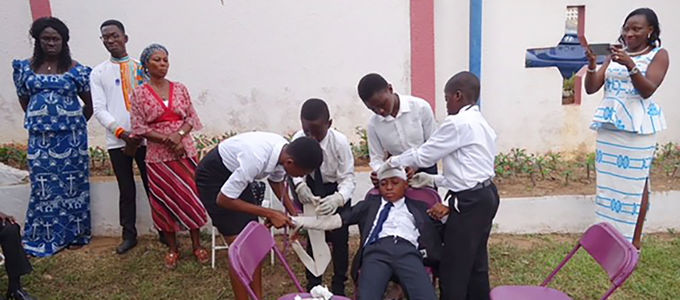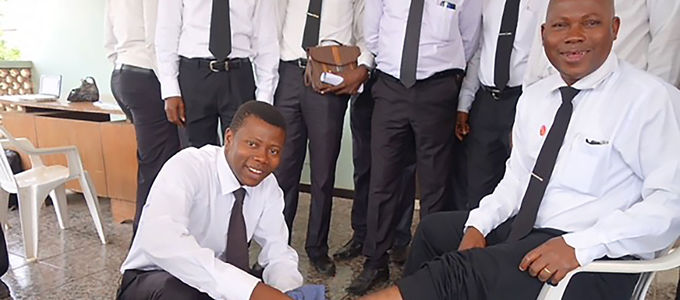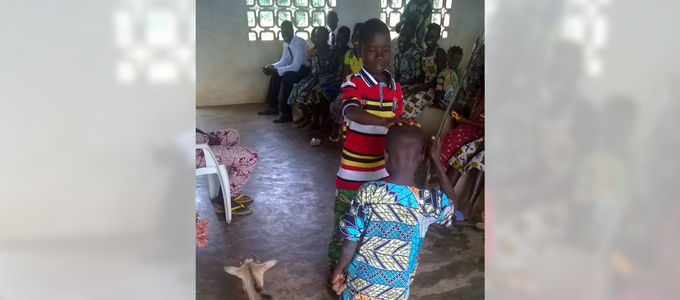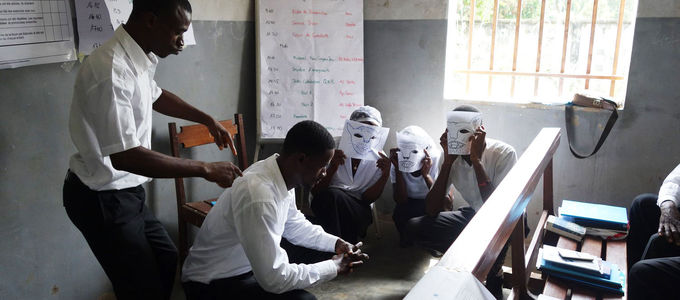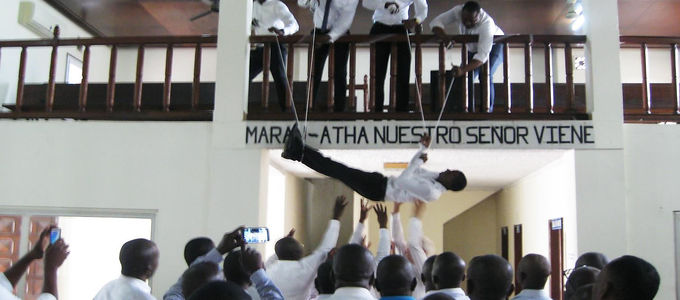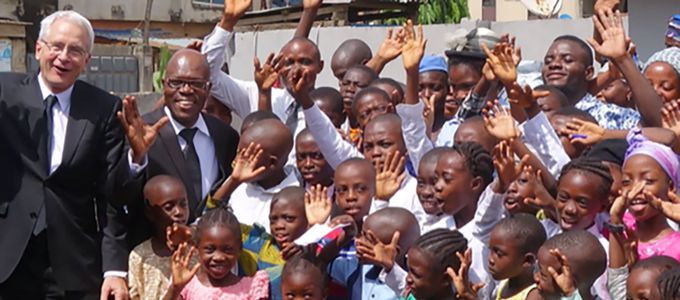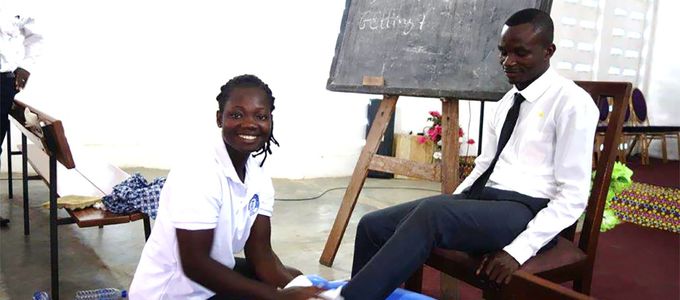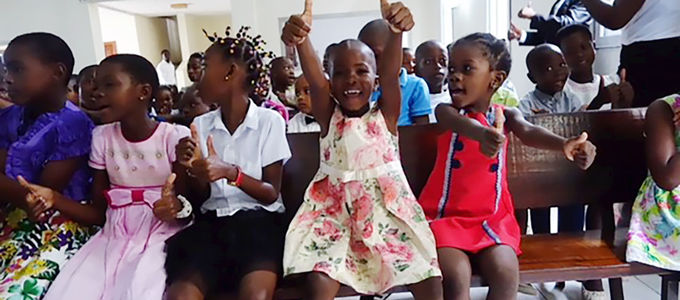
Sunday School? Of course, everybody has Sunday School. But not in Africa, where about 85 per cent of New Apostolic Christians live. Since 2015, however, Sunday School has been a top priority for the Church in Africa. And how are things going?
“This is my agenda for Africa.” This is how Chief Apostle Jean-Luc Schneider ended his speech to the African Apostles who had gathered for the Pentecost celebrations in Lusaka (Zambia) in 2015. “I ask you, my dear Apostles, to please make a priority of these tasks: instruct the ministers, and establish Sunday School for children in all congregations.”
The Chief Apostle is aware that this is a huge challenge. After all, as a District Apostle he was responsible for some 1.5 million members in the south-eastern part of the Democratic Republic of the Congo. The most pressing problems, he said, were not enough teachers and money for teaching material.
No congregation without children
Just how big the challenges are, District Elder Wolfgang Oehler knows all too well. In addition to pastoral care, he is responsible for training in eleven countries in West Africa: from Guinea all the way down the coast to Gabon. On behalf of District Apostle Michael Ehrich (Southern Germany), he has been involved with training and teaching concepts there—in the beginning for ministers, but since 2012 also for teachers.
The New Apostolic Church in these countries has more than 900,000 members, who are spread over nearly 7,000 congregations. About 35 per cent of the population is under 14 years of age. “There is practically no congregation without children,” Oehler tells nac.today. His work is based on three principles: doing is better than knowing, making a difference with simple means, and building on local skills by training the trainers.
Training the trainer
The teaching pyramid model consists of several levels. Wolfgang Oehler, formerly chairman of the board of an insurance company, and his seminar supervision team in Germany develop the material needed to train the teachers and plan the introduction to the local trainers. Every country has a so-called national head of seminars, who co-ordinates the implementation and financing together with the national Church office.
At the next level, things become more concrete. The area head of seminars—usually an Apostle or a Bishop—is responsible for implementing the training in the respective Apostle area. He is assisted by two to four senior tutors who, together with local tutors, teach the prospective Sunday School teachers.
Learning by doing
What does a two-day course look like? “We don’t want to play the big teachers who know everything,” Wolfgang Oehler says. Instead of long theoretical explanations and lectures we usually only give a short introduction and then immediately launch into the practical aspects of teaching: participants lead through a Sunday School lesson which they were able to prepare in advance.
“Then we talk about what was good and where there is still room for improvement,” he explains. “We want to reinforce people’s individual responsibility and want them to be proactive.” Besides, when it comes down to how to go about things we do not want to force teaching methods on them, but make use of the local experience.
Role plays are important
Videos and beamers, drawing and crafts? These kinds of resources are rarely available to Sunday School teachers in West Africa. Like everywhere else, it is important that teachers present the material in a lively and engaging way and review new material with the students. Role plays are the preferred method. It can happen that in a teacher training course, a teacher playing a paralytic might dangle from the ceiling in a blanket and then be dumped at the feet of Jesus.
For teacher training, the District Elder relies on both efficient and effective methods. He calls his one-pagers, which summarise the most important aspects in a nutshell, “lazybones”. For example, the “5 + 10 commandments for the good teacher” (see our image gallery).
Success is not just measured in numbers
And does this method work? “You have to make success quantifiable,” Wolfgang Oehler, a mathematician, says. That is why the congregations in West Africa now also record Sunday School in the service register.
Fifty per cent of the congregations regularly have lessons, with a distinct upward trend. Some countries—such as Sierra Leone with 69 per cent and Liberia with 71 per cent—are even close to reaching the target of 80 per cent.
The training programme has an additional objective: by 2020 the African teachers are to do their own teacher training. The District Elder is sure: “We can do it! We already have excellent and highly motivated tutors.”
For Wolfgang Oehler, however, success is not just measured in numbers. He is in Africa four times a year—for up to two months in total. When he is there he not only attends the training courses but also Sunday School. “It is the most beautiful thing to see how happy, excited, and focused the children are in Sunday School.”







